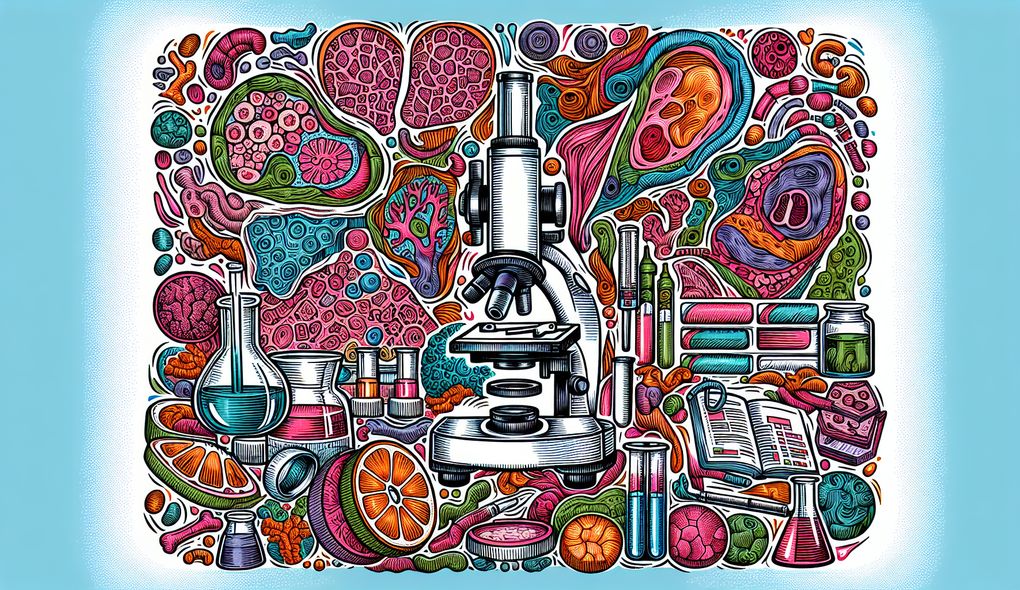What steps do you take to ensure the accuracy and validity of your findings and reports?
JUNIOR LEVEL

Sample answer to the question:
To ensure the accuracy and validity of my findings and reports, I follow a systematic approach. First, I carefully review and analyze the data and results obtained from laboratory tests. I double-check the accuracy of the measurements and ensure that all necessary controls have been included. Next, I cross-reference my findings with established medical literature and guidelines to ensure that my interpretations are in line with current standards. I also consult with senior pathologists and discuss complex cases to gain additional insights and perspectives. Finally, before finalizing my reports, I meticulously proofread and verify all the information included to eliminate any errors or inconsistencies.
Here is a more solid answer:
To ensure the accuracy and validity of my findings and reports, I have developed a comprehensive approach. Firstly, I meticulously review and analyze all the data and results obtained from laboratory tests, paying close attention to every detail. I double-check the accuracy of measurements and verify that all necessary controls have been included. Secondly, I consistently stay up-to-date with the latest medical literature and guidelines. I regularly consult reputable sources to ensure that my interpretations align with current standards and best practices. Moreover, I actively engage in discussions with senior pathologists to seek their guidance and insights on complex cases. Their expertise helps me improve my diagnostic skills and validates my findings. Finally, I prioritize the quality assurance process. Before finalizing my reports, I conduct thorough proofreading and verification, ensuring that all the information is accurate, consistent, and well-organized.
Why is this a more solid answer?
The solid answer improves upon the basic answer by providing specific strategies and examples. It emphasizes the importance of attention to detail and familiarity with medical literature. It also highlights collaboration with senior pathologists and the quality assurance process. However, it can still be improved by elaborating on the specific laboratory tests and instruments used to ensure accuracy and validity.
An example of a exceptional answer:
Ensuring accuracy and validity is of utmost importance in my work as a pathologist. To achieve this, I follow a robust process encompassing several key steps. Firstly, I meticulously examine each laboratory sample using sophisticated tests and instruments, ensuring that the measurements are precise and accurate. I validate the accuracy of the results by including appropriate positive and negative controls in every analysis. Secondly, I perform a comprehensive literature review, accessing renowned medical journals and databases. This allows me to stay updated with the latest advancements and guidelines in pathology. I critically evaluate each source, assessing the credibility and relevance before incorporating the information into my reports. Additionally, I actively participate in interdisciplinary conferences and engage in discussions with experts from various fields. This collaborative approach helps me gain diverse perspectives and validates my findings. Finally, I am committed to maintaining a robust quality control system. I regularly participate in proficiency testing programs and monitor the precision and accuracy of my own tests. Moreover, I consistently adhere to laboratory safety protocols and ensure the confidentiality of patient information at all times.
Why is this an exceptional answer?
The exceptional answer goes above and beyond by providing specific details about the sophisticated tests and instruments used. It also emphasizes the critical evaluation of medical literature and the importance of interdisciplinary collaboration. Additionally, it highlights the commitment to maintaining a robust quality control system and ensures the confidentiality of patient information. The answer demonstrates a deep understanding of the responsibilities and requirements of the role, showcasing the candidate's expertise and commitment to accuracy and validity.
How to prepare for this question:
- Familiarize yourself with current medical literature and guidelines related to pathology.
- Develop strong analytical and problem-solving skills to critically evaluate test results and findings.
- Stay updated with advancements in laboratory technology, instruments, and quality assurance protocols.
- Seek opportunities to collaborate with senior pathologists and engage in discussions with experts from different fields.
- Practice meticulous attention to detail in all aspects of your work, including data analysis and report preparation.
What are interviewers evaluating with this question?
- Attention to detail
- Analytical skills
- Collaboration
- Knowledge of medical literature
- Quality assurance

